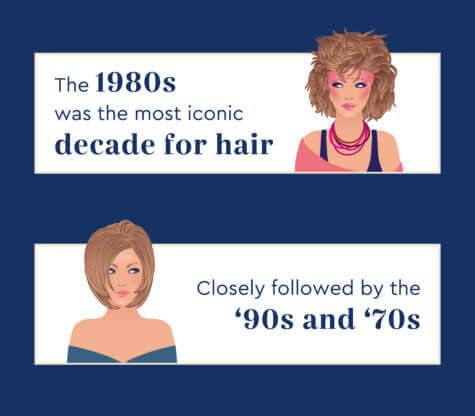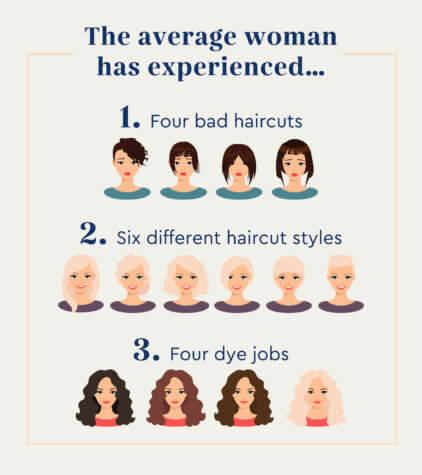
A woman in '80s fashion (© Михаил Гута - stock.adobe.com)
NEW YORK — Crimps, perms and teases – oh my! A new survey reveals that the 1980s were officially the most iconic decade for hair.
The survey of 2,000 American women asks about their hairstyle journeys throughout the years and found the '80s to be the best decade for ‘dos. Respondents crowned the runner ups as the 1990s and 1970s, respectively. But throughout the years, women’s relationships with their hair have been far from perfect.

What do women admit are the biggest changes they’ve seen in their hair as they’ve aged? Dryness and overall damage top the list, both at 41 percent. A further 35 percent of respondents admit their hair also doesn’t hold styling quite like it used to back in the day. So it’s no surprise that 28 percent of women polled are starting to feel frustrated with their hair.
Half of women surveyed agree they’re currently in a hairstyle rut and don’t know what to do. Another 49 percent are simply too scared to try something new.
What are the most iconic hairstyles?
Respondents were also asked to pinpoint the most iconic hairstyles of all time. Farrah Fawcett’s feathered locks still reign supreme, according to the survey.
Next in line for most iconic locks includes Shirley Temple’s curls, Marilyn Monroe’s platinum blonde hair and Jennifer Aniston’s “The Rachel” from “Friends.” Although not everyone can rock these memorable ‘dos, nearly eight in 10 women have finally come to appreciate and love their hair thanks to their time in COVID-19 quarantine.
Eighty-five percent of women, in fact, say they’re happy they let their hair go natural during this time. More than a third (36%) have even embarked on a total “hair reset” back to their true color. Over half of respondents also shared that improving their hair’s health has been a top priority of theirs during this time.
“Hair health is more than physical appearance – it can affect self-confidence and expression at any age,” says a spokesperson from Hair Biology.
And what about what happens when those gray hairs arrive? Amazingly, nearly half of women say each gray hair is actually an accomplishment in their eyes, rather than something to be upset about. Perhaps just as impressive, 57 percent are enjoying their aging journey over all so far, and 68 percent say they’d much rather embrace the aging process than try to hide it.
“Rather than trying to cover up the changes that are occurring as we age it’s important to address and embrace them in order to keep women feeling bolder, not older,” explains Dr. Jeni Thomas, PhD, principal scientist at Hair Biology. “We believe in the power of celebrating age and the experience that comes with it.”











